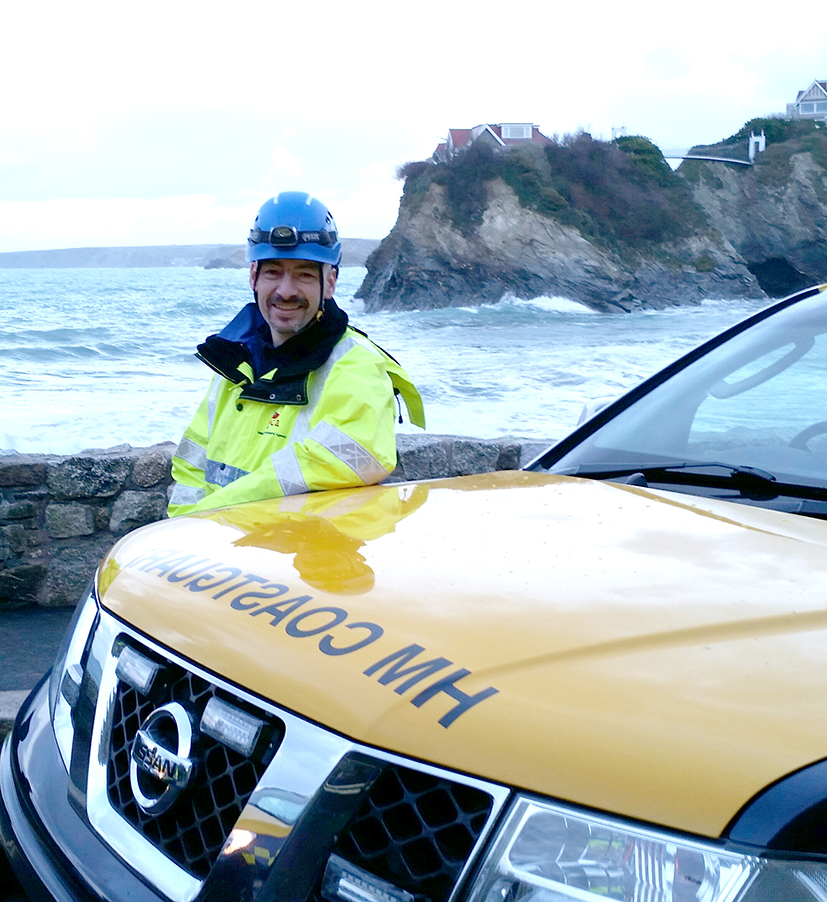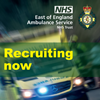Blue Light Programme with Mind

Since March 2015, Mind’s Blue Light Programme has been raising awareness, and helping tackle the high prevalence, of stress and poor mental health among emergency services staff and volunteers in England and Wales, including police officers.
An online poll published in April 2016 revealed more than one in four (27 per cent) people had contemplated taking their own lives due to stress and poor mental health while working for the emergency services, while nearly two thirds (63 per cent) had contemplated leaving their job or voluntary role because of stress or poor mental health.
We surveyed over 1,600 staff and volunteers from 999 services (police, fire, ambulance and search and rescue) and found over 9 in 10 (92 per cent) respondents had experienced stress, low mood and poor mental health at some point while working for the emergency services, while a staggering 62 per cent said they had experienced a mental health problem – such as depression, anxiety disorder, OCD, PTSD, bipolar disorder or schizophrenia – while working or volunteering in their current or previous Blue Light role. People who worked or volunteered within the police service were particularly vocal, representing nearly two thirds of respondents (1,030) to our online survey.
These worrying statistics highlight the need for greater mental health support for our Blue Light workers. The challenging nature of the job – with its unique pressures – can put staff and volunteers at greater risk of developing a mental health problem. That’s why it’s so important support is available to ensure dedicated workers are at their best and ready to carry out these difficult and life-saving roles that can often be taken for granted.
Despite the high prevalence of mental health problems, the survey revealed that less than half (48 per cent) had taken time off work due to stress, low mood or poor mental health. In addition, nearly half (46 per cent) said that someone would be treated differently (in a negative way) if they disclosed a mental health problem at their organisation. These results indicate there’s still a taboo around talking about these issues and a culture of continuing to work even when unwell – which can be problematic.
Respondents to our poll also told us that, while working for the emergency services:
• Two in five (41 per cent) had
been prescribed medication
(such as antidepressants,
sleeping tablets etc.) due to
stress and poor mental health
• Five per cent had made an
actual attempt to take their
own life due to stress and
poor mental health
• Over half (55 per cent) had
sought medical help due to stress
and poor mental health
• Six per cent had been admitted
to hospital due to stress and
poor mental health
Lots of our respondents said they feel they would be treated differently if they had a mental health problem, and wouldn’t feel comfortable coming forward if they were struggling with their mental health. To date, we’ve disseminated over 300,000 information resources, over 5,500 managers have participated in line manager training, over 800 emergency service staff have registered to be ‘Blue Light Champions’ and 57 Blue Light employers and 9 national associations sign the Blue Light Time to Change pledge – a commitment to raising awareness of mental health, tackling stigma and helping enable staff and volunteers to talk more openly about their mental health at work.
Thankfully, there is a great deal of good practice happening at an organisational level across the country, in large part as a result of Mind’s Blue Light Programme. A major part of the Programme has been the recruiting of Blue Light champions – individuals within the emergency services who are willing and able to share their own experiences of unmanageable stress and poor mental health – to encourage others to follow suit.
One such Champion is Regie Butler, 48. Regie is a Police Sergeant with Devon and Cornwall Police on response, answering emergency incidents. He is also a volunteer Rescue Officer with Newquay Coastguard Rescue team, on call 24/7, assisting with emergencies on the coast, such as cliff rescues. Regie has experienced anxiety, depression and suicidal thoughts and is a Blue Light Champion, raising awareness of mental health among the police and search and rescue.
He says: “I became a Blue Light Champion to try to turn my mental health problems into something positive that could help others. I’ve been suicidal twice in my life, most recently about 12 or 18 months ago. It was an awful time, but I managed to get through it. I couldn’t have done it alone. I realised the best thing to do is to spread the message that we’ve just got to talk about it and not hide away or suffer in silence. That only makes things worse and can be the difference between life and death. Mental health problems are nothing to be ashamed of, and there is help and support out there.
“By providing information about, and raising awareness of mental health, Mind’s Blue Light programme has helped so many emergency services staff and volunteers better identify poor mental health in themselves and their colleagues.”
In the last eighteen months, we’ve made some great progress when it comes to raising awareness, tackling stigma and encouraging working environments where people feel able to talk about mental health. Blue Light services have engaged in the Blue Light Programme at all levels. But we have to be realistic – it’s not possible to change attitudes and working cultures overnight. We need to see an ongoing commitment to prioritising the emotional wellbeing of emergency services workers to enable them to continue doing their vital work serving our community, backed up by the funding and resources to deliver support.
Fortunately in the Autumn Statement, additional support for emergency services staff and volunteers was announced. A further £1.5 million is being administered to allow us to continue to bring mental health out of the shadows and provide mental health support to 999 workers until March 2018. For the first time, from 2017, we’ll be able to deliver much-needed support to emergency services staff and volunteers in Wales, as well as extending our existing support to include 999 call-handlers and new recruits. This investment will also allow us to begin to identify and tackle specific mental health challenges facing accident and emergency (A&E) workers within England and Wales including doctors, consultants, nurses and security staff. It will also help Mind continue to run the Blue Light Infoline – a confidential information and support line for emergency services staff, volunteers and their friends and family, particularly those who are worried about their own mental health or someone else’s.
We still have a long way to go to tackle the mental health crisis within the 999 services and we need the help of everyone to help break the silence and taboo around mental health in the emergency services. Find out more about Mind’s Blue Light programme and how you can help stamp out the stigma by becoming a Blue Light champion at www.mind.org.uk/bluelight.




